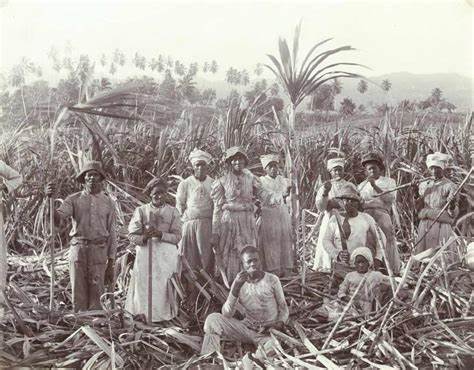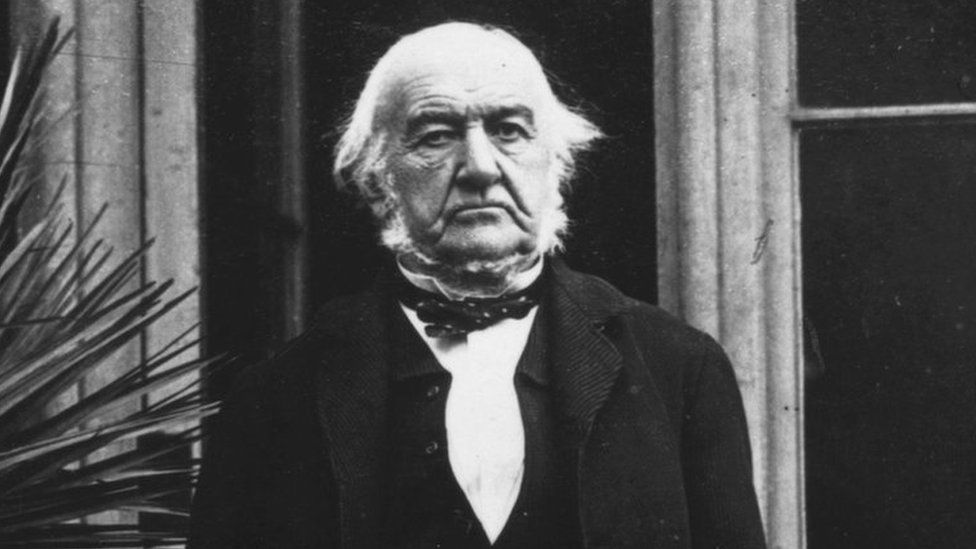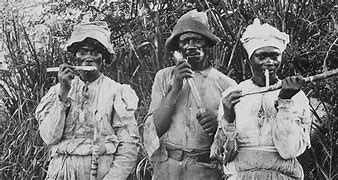The Gladstone family, descendants of former UK Prime Minister William Gladstone, has been urged to pay slavery reparations to Jamaica. The family recently apologized for their ancestor’s role in slavery in Guyana and pledged to fund research into slavery and other projects. However, they have faced criticism for failing to acknowledge the case for reparations in Jamaica. John Gladstone, the father of William Gladstone, was one of the largest slave owners in the British West Indies, owning or holding mortgages over thousands of enslaved Africans. The Jamaican academic and professor of social history has called on the Gladstone family to apologize and commit to reparations in Jamaica. This article explores the ongoing discussions and actions surrounding the issue of slavery reparations.

Gladstone family urged to pay slavery reparations to Jamaica

Overview
The descendants of former Prime Minister William Gladstone are facing calls to pay reparations to Jamaica for an ancestor’s role in slavery. The Gladstone family recently apologised for its slaveholding past in Guyana and pledged to fund research into slavery and other projects. However, the family has been accused of failing to acknowledge the case for paying slavery reparations in Jamaica. This article will examine the apology made by the Gladstone family, the accusations of ignoring Jamaica’s reparations claims, the role of John Gladstone in the slave trade, the proposed reparations plan by Caribbean nations, and the criticisms and scepticism surrounding the family’s approach.
Apology for Slaveholding Past in Guyana
The Gladstone family issued an apology for their slaveholding past in Guyana. Charlie Gladstone, the great-great-grandson of William Gladstone, read the apology at a ceremony and condemned slavery as a “crime against humanity.” The family also pledged to fund research into slavery and other projects. While this apology was well-received, there are concerns that the family’s focus on Guyana overlooks their involvement in Jamaica.
Accusations of Ignoring Jamaica
Critics argue that the Gladstone family has solely focused on their historical ties to Guyana and has failed to acknowledge the case for reparations in Jamaica. John Gladstone, the father of William Gladstone, owned significant properties in Jamaica and profited from slave labor in the country. Verene Shepherd, director of the Centre for Reparation Research at the University of the West Indies, has called on the Gladstone family to apologize and commit to reparations in Jamaica, stating that they need to “come to the scene of the crime” and acknowledge the impact of slavery in Jamaican communities.

John Gladstone’s Role in Slavery
John Gladstone was one of the largest slave owners in the British West Indies, with significant ownership and mortgage holdings over enslaved Africans in Guyana and Jamaica. His involvement in the slave trade was extensive, and he received substantial compensation after the abolition of the slave trade. His role in slavery and the vast profits he made raise questions about the responsibility of his descendants to address the legacy of slavery through reparations.

Reparations Plan Proposed by Caribbean Nations
Caribbean nations have proposed a 10-point reparations plan to address the legacy of slavery. The Gladstone family has expressed support for this plan, which includes measures such as public apologies, repatriation, indigenous peoples’ development, and cultural institutions. By endorsing this plan, the family acknowledges the need to address the historical injustices inflicted by slavery.
Calls for Apology in Jamaica
Verene Shepherd, a Jamaican academic and professor of social history, has called on the Gladstone family to apologize and commit to reparations in Jamaica. Given John Gladstone’s ownership of significant properties in the country, Shepherd argues that the family should acknowledge the impact of slavery and engage with reparations efforts in Jamaica. This call for an apology emphasizes the need for individual families to take responsibility for their ancestors’ actions.


Reparations and Compensation
Reparations are broadly recognized as compensation given for something that was deemed wrong or unfair. They can take various forms, including financial compensation, educational initiatives, community development projects, and public apologies. Compensation serves as an acknowledgement of past wrongs and an attempt to address the lasting impacts of slavery. The Gladstone family’s apology and commitment to funding research and projects related to slavery are steps towards reparations, but further engagement with impacted communities is necessary.
Donations and Funding
As part of their commitment to reparations, the Gladstone family has pledged to donate £100,000 to the University of Guyana’s International Institute for Migration and Diaspora Studies. Additionally, they have promised funding for various projects in Guyana and the Centre for the Study of the Legacies of British Slavery at UCL for five years. These financial contributions aim to support research and initiatives that shed light on the legacy of slavery and its ongoing impact.

Jamaica’s National Council on Reparations
Jamaica’s National Council on Reparations is currently discussing the Gladstone case and considering what action to take. The council has not had any contact with the Gladstone family to date. The involvement of this council highlights the need for dialogue and collaboration between individuals and communities impacted by slavery and those who have benefited from it.

Reparations Approach of John Gladstone
John Gladstone’s involvement in the slave trade raises the question of how his descendants should approach reparations. The significance of his ownership and mortgage holdings over enslaved Africans in Guyana and Jamaica necessitates a comprehensive and sincere approach to reparations. The family’s commitment to funding research and projects related to slavery is a step in the right direction but falls short of directly engaging with reparations groups in impacted communities.

Attempts of British Descendants to Atone for Ancestors’ Actions
The Gladstones are not the only British descendants of slave owners attempting to atone for the actions of their ancestors. The Heirs of Slavery, a group of British individuals whose families profited from the transatlantic slave trade, seek to make amends for their families’ roles. This movement towards acknowledging and addressing historical injustices reflects a growing awareness of the need to confront the legacy of slavery.
Scepticism about Families’ Reparations Efforts
While there is recognition of the importance of reparations and addressing the legacy of slavery, there is also scepticism about the motivations behind families’ efforts. Judge Patrick Robinson expressed some scepticism about these families, stating that reparations should be based on the number of slaves owned and the extent to which the family benefitted economically. To avoid tokenistic efforts, it is crucial for families like the Gladstones to ascertain the true extent of reparations owed based on historical records and assessments.
Calculating the Reparations Owed
Calculating the reparations owed can be a complex task that requires a comprehensive assessment of historical records and economic impact. The Brattle Group, an economic consulting firm, produced a report on the reparations owed by states involved in slavery, including the UK. The report suggests that the UK should pay $24tn for its slavery involvement. To determine the reparations personally owed by the Gladstones, a similar calculation could be undertaken to assess the extent of their family’s involvement in slavery.

Criticism of the Gladstone Family’s Approach
The Gladstone family’s approach to reparations has faced criticism, particularly regarding their funding of research instead of direct engagement with reparations groups. Some argue that the family should have engaged with community organizers and reparations groups to explore the best way forward. The failure to acknowledge Jamaica in their apology has also drawn criticism, as it suggests an unwillingness to fully confront the brutal horrors of chattel slavery in the country. To ensure a meaningful and impactful approach to reparations, it is important for families like the Gladstones to engage directly with impacted communities and organizations.


